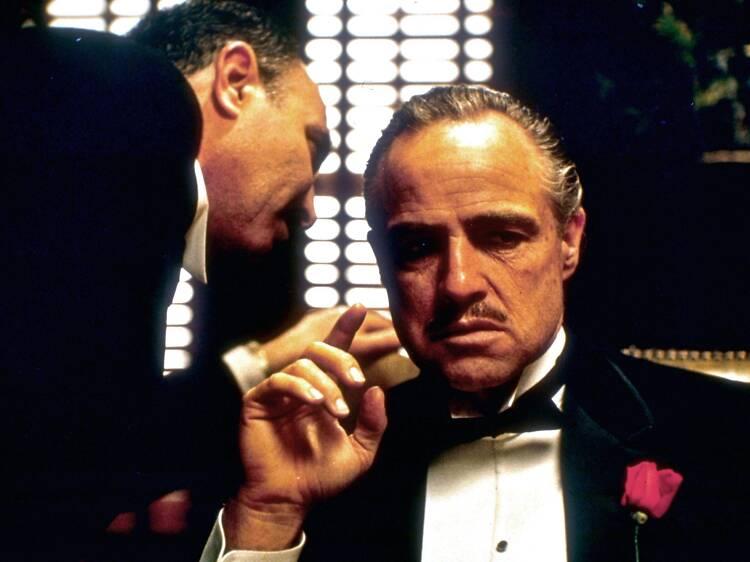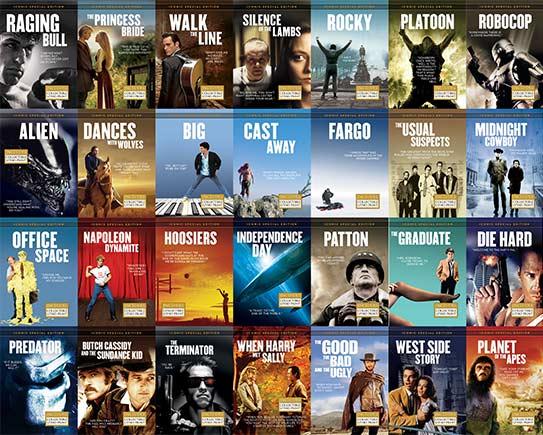In the ever-evolving landscape of cinema, where trends flicker and fade like the fleeting glow of a marquee, certain films emerge as timeless beacons, casting their enduring light across generations. These iconic masterpieces, forged in the crucible of creativity and vision, transcend the ephemeral nature of popular culture to etch their narratives into the collective consciousness. As we embark on this cinematic odyssey, we invite you to delve into the stories behind these legendary films—works of art that have not merely survived the relentless march of time but have thrived, influencing and inspiring audiences anew with each passing decade. Join us as we explore the alchemy of storytelling, direction, and performance that grants these films their immortality, cementing their status as pillars of the cinematic pantheon.
Exploring Cinematic Masterpieces from Decades Past
In the ever-evolving world of cinema, certain films emerge as timeless classics, transcending the constraints of their era to resonate with audiences across generations. These cinematic masterpieces are celebrated for their groundbreaking storytelling, innovative direction, and unforgettable performances. Here, we delve into some of these iconic films that have left an indelible mark on the history of filmmaking.
- Casablanca (1942): A romantic drama set against the backdrop of World War II, this film captures the complexities of love and sacrifice with impeccable performances by Humphrey Bogart and Ingrid Bergman.
- Citizen Kane (1941): Often hailed as the greatest film ever made, Orson Welles’ magnum opus is a profound exploration of power and ambition, with its innovative narrative structure and groundbreaking cinematography.
- The Godfather (1972): This epic tale of family and loyalty in the world of organized crime is renowned for its powerful performances, particularly by Marlon Brando and Al Pacino, and its masterful direction by Francis Ford Coppola.
- Psycho (1960): Alfred Hitchcock’s thriller redefined the horror genre, with its iconic shower scene and suspenseful storytelling that keeps viewers on the edge of their seats.
- 2001: A Space Odyssey (1968): Stanley Kubrick’s visionary sci-fi film explores humanity’s relationship with technology and the unknown, featuring stunning visuals and a thought-provoking narrative.

Analyzing Timeless Themes and Unforgettable Performances
Throughout the history of cinema, certain films have transcended their era, offering profound insights into the human condition through timeless themes and unforgettable performances. These masterpieces resonate across generations, capturing universal truths and emotions that remain relevant regardless of the passage of time. Whether it’s the exploration of love and loss, the struggle between good and evil, or the quest for identity, these narratives weave a tapestry of experiences that speak to the core of our shared humanity.
- Love and Sacrifice: Films like Casablanca and Romeo and Juliet continue to captivate audiences with their exploration of romance intertwined with the inevitability of sacrifice.
- Good vs. Evil: The battle between darkness and light in The Lord of the Rings and Star Wars epitomizes the timeless struggle that defines many epic tales.
- Identity and Transformation: Movies such as Fight Club and The Matrix challenge viewers to question reality and the self, offering profound insights into personal transformation.

Recommendations for Essential Viewing and Cultural Appreciation
For those who yearn to experience cinema that transcends time and culture, there are several masterpieces that should be on your watchlist. These films not only offer a glimpse into different eras and societies but also present universal themes that resonate with audiences across generations. Immerse yourself in the brilliance of these cinematic gems and appreciate the artistry and storytelling that have earned them a permanent place in the pantheon of film history.
- “Citizen Kane” (1941): Often hailed as the greatest film ever made, Orson Welles’ magnum opus explores themes of power, corruption, and the elusiveness of truth, with innovative cinematography that continues to influence filmmakers today.
- “The Godfather” (1972): A cornerstone of American cinema, this epic tale of family, loyalty, and betrayal showcases the finest performances from an ensemble cast, paired with Francis Ford Coppola’s masterful direction.
- “Seven Samurai” (1954): Akira Kurosawa’s epic adventure remains a pinnacle of world cinema, blending action, drama, and philosophy with an enduring narrative of courage and sacrifice.
- “Pulp Fiction” (1994): Quentin Tarantino’s iconic film redefined narrative structure in cinema, with its interwoven stories and unforgettable dialogue, leaving a lasting impact on both the industry and pop culture.
By engaging with these works, viewers not only enjoy captivating storytelling but also deepen their understanding of the cultural and historical contexts that shaped these iconic films. This curated selection is a testament to the enduring power of cinema as an art form and its ability to connect people across time and space.
Understanding the Lasting Impact on Modern Filmmaking
In the ever-evolving world of cinema, certain films have carved out a legacy that continues to shape and inspire contemporary filmmakers. These timeless masterpieces often transcend their era, offering a unique blend of storytelling, innovation, and artistic expression. Iconic films like “Citizen Kane,” “The Godfather,” and “Pulp Fiction” have not only defined genres but have also introduced groundbreaking techniques that are still emulated today. For instance, “Citizen Kane” is renowned for its pioneering use of deep focus and nonlinear storytelling, while “The Godfather” set a new standard for character development and cinematic realism. “Pulp Fiction” redefined narrative structure with its nonlinear timeline, influencing a generation of directors to experiment with storytelling.
These films offer more than just entertainment; they serve as textbooks for aspiring filmmakers and seasoned directors alike. Some key elements that continue to impact modern filmmaking include:
- Innovative Cinematography: Techniques like the long take, close-up shots, and unique camera angles were popularized by these classics.
- Complex Characters: Deeply developed characters provide rich, emotional narratives that resonate with audiences.
- Bold Narrative Choices: Nonlinear storytelling and unexpected plot twists keep viewers engaged and intrigued.
- Genre Blending: Mixing elements from different genres to create fresh, new cinematic experiences.
Through these influential elements, classic films continue to serve as a foundation and a source of inspiration for today’s filmmakers, ensuring their lasting impact on the art of cinema.


